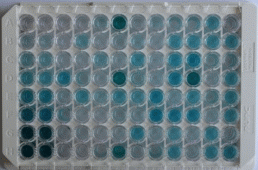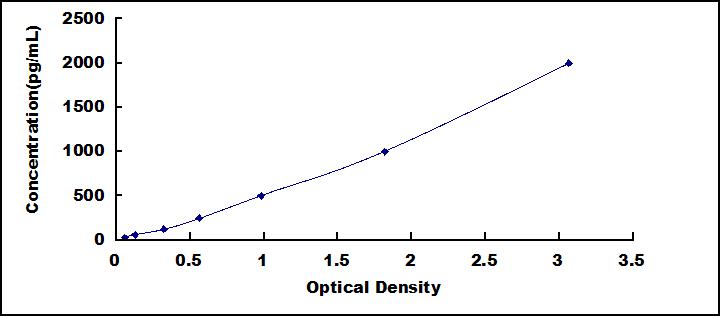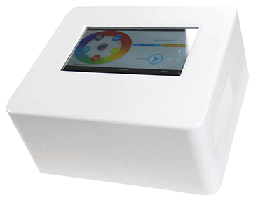Packages (Simulation)

Reagent Preparation

Image (I)
Image (II)
Certificate


ELISA Kit for Epidermal Growth Factor Receptor (EGFR)
ErbB-1; ErbB1; ER1; ERB-B1; MENA; HER1; Erythroblastic Leukemia Viral(v-Erb-B)oncogene Homolog,Avian; Proto-oncogene c-ErbB-1; Receptor tyrosine-protein kinase erbB-1
- Product No.SEA757Mu
- Organism SpeciesMus musculus (Mouse) Same name, Different species.
- Sample Typeserum, plasma, tissue homogenates and other biological fluids
- Test MethodDouble-antibody Sandwich
- Assay Length3h
- Detection Range31.2-2,000pg/mL
- SensitivityThe minimum detectable dose of this kit is typically less than 12.2pg/mL.
- DownloadInstruction Manual
- UOM 48T96T 96T*5 96T*10 96T*100
- FOB
US$ 454
US$ 648
US$ 2916
US$ 5508
US$ 45360
For more details, please contact local distributors!
Specificity
This assay has high sensitivity and excellent specificity for detection of Epidermal Growth Factor Receptor (EGFR).
No significant cross-reactivity or interference between Epidermal Growth Factor Receptor (EGFR) and analogues was observed.
Recovery
Matrices listed below were spiked with certain level of recombinant Epidermal Growth Factor Receptor (EGFR) and the recovery rates were calculated by comparing the measured value to the expected amount of Epidermal Growth Factor Receptor (EGFR) in samples.
| Matrix | Recovery range (%) | Average(%) |
| serum(n=5) | 82-94 | 89 |
| EDTA plasma(n=5) | 84-98 | 92 |
| heparin plasma(n=5) | 91-99 | 95 |
Precision
Intra-assay Precision (Precision within an assay): 3 samples with low, middle and high level Epidermal Growth Factor Receptor (EGFR) were tested 20 times on one plate, respectively.
Inter-assay Precision (Precision between assays): 3 samples with low, middle and high level Epidermal Growth Factor Receptor (EGFR) were tested on 3 different plates, 8 replicates in each plate.
CV(%) = SD/meanX100
Intra-Assay: CV<10%
Inter-Assay: CV<12%
Linearity
The linearity of the kit was assayed by testing samples spiked with appropriate concentration of Epidermal Growth Factor Receptor (EGFR) and their serial dilutions. The results were demonstrated by the percentage of calculated concentration to the expected.
| Sample | 1:2 | 1:4 | 1:8 | 1:16 |
| serum(n=5) | 95-103% | 85-92% | 83-93% | 81-95% |
| EDTA plasma(n=5) | 92-101% | 88-95% | 80-94% | 81-98% |
| heparin plasma(n=5) | 83-102% | 82-89% | 86-95% | 90-105% |
Stability
The stability of kit is determined by the loss rate of activity. The loss rate of this kit is less than 5% within the expiration date under appropriate storage condition.
To minimize extra influence on the performance, operation procedures and lab conditions, especially room temperature, air humidity, incubator temperature should be strictly controlled. It is also strongly suggested that the whole assay is performed by the same operator from the beginning to the end.
Reagents and materials provided
| Reagents | Quantity | Reagents | Quantity |
| Pre-coated, ready to use 96-well strip plate | 1 | Plate sealer for 96 wells | 4 |
| Standard | 2 | Standard Diluent | 1×20mL |
| Detection Reagent A | 1×120µL | Assay Diluent A | 1×12mL |
| Detection Reagent B | 1×120µL | Assay Diluent B | 1×12mL |
| TMB Substrate | 1×9mL | Stop Solution | 1×6mL |
| Wash Buffer (30 × concentrate) | 1×20mL | Instruction manual | 1 |
Assay procedure summary
1. Prepare all reagents, samples and standards;
2. Add 100µL standard or sample to each well. Incubate 1 hours at 37°C;
3. Aspirate and add 100µL prepared Detection Reagent A. Incubate 1 hour at 37°C;
4. Aspirate and wash 3 times;
5. Add 100µL prepared Detection Reagent B. Incubate 30 minutes at 37°C;
6. Aspirate and wash 5 times;
7. Add 90µL Substrate Solution. Incubate 10-20 minutes at 37°C;
8. Add 50µL Stop Solution. Read at 450nm immediately.
GIVEAWAYS
INCREMENT SERVICES
-
 Single-component Reagents of Assay Kit
Single-component Reagents of Assay Kit
-
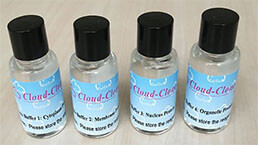 Lysis Buffer Specific for ELISA / CLIA
Lysis Buffer Specific for ELISA / CLIA
-
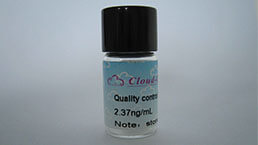 Quality Control of Kit
Quality Control of Kit
-
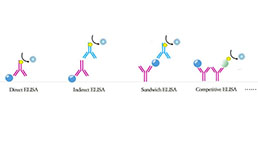 ELISA Kit Customized Service
ELISA Kit Customized Service
-
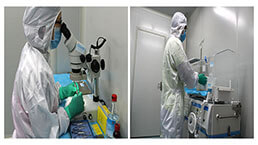 Disease Model Customized Service
Disease Model Customized Service
-
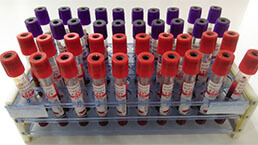 Serums Customized Service
Serums Customized Service
-
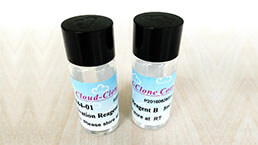 TGFB1 Activation Reagent
TGFB1 Activation Reagent
-
 Real Time PCR Experimental Service
Real Time PCR Experimental Service
-
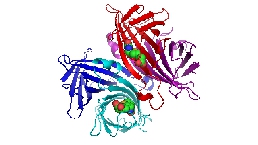 Streptavidin
Streptavidin
-
 Fast blue Protein Stain solution
Fast blue Protein Stain solution
-
 Single-component Reagents of FLIA Kit
Single-component Reagents of FLIA Kit
-
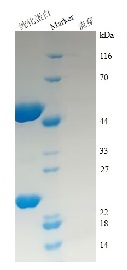 Streptavidin-Agarose Beads
Streptavidin-Agarose Beads
| Magazine | Citations |
| Thoracic Cancer | Nimotuzumab combined with gemcitabine and cisplatin as second-line chemotherapy for advanced non-small-cell lung cancer Wiley: source |
| J Cent Nerv Syst Dis.? | Increased Epidermal Growth Factor Receptor (EGFR) Associated with Hepatocyte Growth Factor (HGF) and Symptom Severity in Children with Autism … Pubmed:25249767 |
| Mol Cancer Ther | GC1118, an anti-EGFR antibody with a distinct binding epitope and superior inhibitory activity against high-affinity EGFR ligands PubMed: 26586721 |
| Cell Death Dis. | LINC01225 promotes occurrence and metastasis of hepatocellular carcinoma in an epidermal growth factor receptor-dependent pathway Pubmed:26938303 |
| analytica chimica acta | Microfluidic immunosensor based on mesoporous silica platform and CMK-3/poly-acrylamide-co-methacrylate of dihydrolipoic acid modified gold electrode for cancer biomarker detection. pubmed:28335979 |
| Talanta | EGFR detection in extracellular vesicles of breast cancer patients through immunosensor based on silica-chitosan nanoplatform Doi: 10.1016/j.talanta.2018.10.016 |
| Bioorganic Chemistry | Design, synthesis, molecular docking and biological activity evaluation of some novel indole derivatives as potent anticancer active agents and apoptosis inducers Pubmed: 30665034 |
| Journal of enzyme inhibition and medicinal chemistry | Novel thienopyrimidine derivatives as dual EGFR and VEGFR-2 inhibitors: design, synthesis, anticancer activity and effect on cell cycle profile Pubmed: 30919701 |
| Bioorganic Chemistry | Design and synthesis of new benzoxazole/benzothiazole-phthalimide hybrids as antitumor-apoptotic agents |
| Bioorganic Chemistry | Synthesis and anticancer activity of bis-benzo [d][1, 3] dioxol-5-yl thiourea derivatives with molecular docking study Pubmed: 31288134 |
| Oxidative Medicine and Cellular Longevity | Evaluation of the Effect Derived from Silybin with Vitamin D and Vitamin E Administration on Clinical, Metabolic, Endothelial Dysfunction, Oxidative Stress Parameters … Pubmed: 31737175 |
| Neoplasia | Patient-derived xenograft (PDX) models of colorectal carcinoma (CRC) as a platform for chemosensitivity and biomarker analysis in personalized medicine Pubmed: 33212364 |
| Association between Serum Epidermal Growth Factor Receptor and Cyclooxygenase-2 Levels in Patients with Non-small Cell Carcinoma of Lung | |
| Synthesis, EGFR-TK inhibition and anticancer activity of new quinoxaline derivatives | |
| IMMUNOLOGIC RESEARCH | Humoral immune response to epidermal growth factor receptor in lung cancer 33495907 |
| European Journal of Medicinal Chemistry | Pyrazolo[3,4-d]pyrimidine-based dual EGFR T790M/HER2 inhibitors: Design, synthesis, structure¨Cactivity relationship and biological activity as potential antitumor and anticonvulsant agents 33545637 |
| Journal of Molecular Structure | Design, synthesis, antiproliferative evaluation, and molecular docking study of new quinoxaline derivatives as apoptotic inducers and EGFR inhibitors |
| ACS Appl Mater Interfaces | Emitter–Quencher Pair of Single Atomic Co Sites and Monolayer Titanium Carbide MXenes for Luminol Chemiluminescent Reactions 34914377 |
| Bioorganic Chemistry | Discovery of new pyrimido [5, 4-c] quinolines as potential antiproliferative agents with multitarget actions: Rapid synthesis, docking, and ADME studies Pubmed:35219045 |
| Catalog No. | Related products for research use of Mus musculus (Mouse) Organism species | Applications (RESEARCH USE ONLY!) |
| RPA757Mu01 | Recombinant Epidermal Growth Factor Receptor (EGFR) | Positive Control; Immunogen; SDS-PAGE; WB. |
| RPA757Mu02 | Recombinant Epidermal Growth Factor Receptor (EGFR) | Positive Control; Immunogen; SDS-PAGE; WB. |
| PAA757Mu02 | Polyclonal Antibody to Epidermal Growth Factor Receptor (EGFR) | WB; IHC; ICC; IP. |
| PAA757Mu01 | Polyclonal Antibody to Epidermal Growth Factor Receptor (EGFR) | WB; IHC; ICC; IP. |
| SEA757Mu | ELISA Kit for Epidermal Growth Factor Receptor (EGFR) | Enzyme-linked immunosorbent assay for Antigen Detection. |
| LMA757Mu | Multiplex Assay Kit for Epidermal Growth Factor Receptor (EGFR) ,etc. by FLIA (Flow Luminescence Immunoassay) | FLIA Kit for Antigen Detection. |

